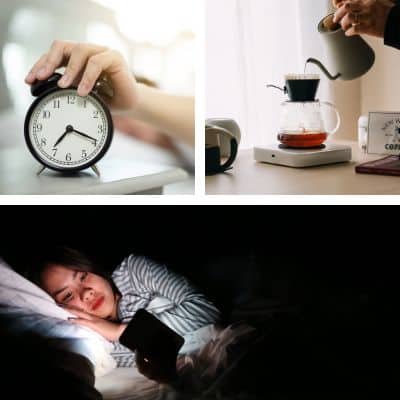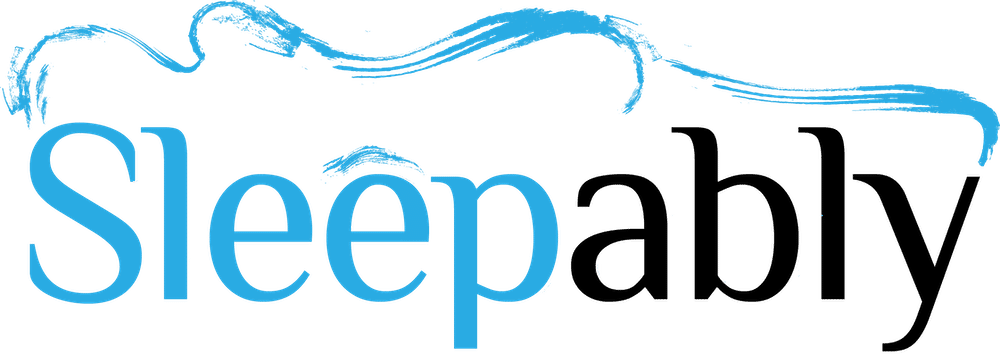Does your team suffer from a lack of sleep and low productivity? If so, it may be time to incorporate sleep hygiene group activities into your team-building efforts.
Sleep plays a vital role in our overall well-being and productivity. By teaching your team members about the importance of good sleep habits and providing them with practical tools to improve their sleep quality, you can foster a more productive and cohesive work environment.
In this article, we will explore five sleep hygiene group activities that can help your team sleep better and increase their productivity. From establishing a relaxing bedtime routine to creating a sleep-friendly office environment, these activities will educate and engage your team members in adopting healthy sleep habits.
By incorporating these sleep education activities for adults into your team-building initiatives, you can promote a culture of wellness and productivity in your organization. If you’d like help with this, keep reading to discover how Sleepably can engage and educate your people about sleep.
Let’s dive in and discover how sleep can be the secret ingredient in building a highly successful and productive team.
The importance of sleep hygiene in the workplace
In today’s fast-paced and demanding work environment, sleep deprivation has become a common problem. Many employees sacrifice sleep to meet deadlines or handle work-related stress. However, this sacrifice is counterproductive in the long run, as it leads to decreased productivity, increased absenteeism, and a higher burnout risk.
That is why organizations need to prioritize sleep hygiene and educate their employees about its significance. By fostering a culture that values and supports good sleep habits, organizations can create a healthier and more productive work environment.
Incorporating sleep hygiene group activities into the workplace culture can lead to a ripple effect of positive outcomes, sparked by fewer illnesses, improved focus, and better mood regulation. As employees start to prioritize sleep and well-being, they may also adopt other healthy habits, such as regular exercise and mindful eating. This holistic approach to health and wellness can create a more vibrant and energetic workforce, capable of tackling challenges with resilience and creativity.
By investing in sleep hygiene group activities, organizations set the stage for long-term success. Healthy, well-rested employees are more likely to stay motivated, innovative, and committed to their work. This dedication can translate into higher levels of customer satisfaction, increased profitability, and a competitive edge in the market.
Ultimately, promoting sleep hygiene in the workplace is not just about getting a good night’s rest; it’s about building a foundation for sustained wellness, growth, and productivity.
The impact of sleep on productivity and team performance
Sleep has a direct impact on productivity and team performance. Numerous studies have shown that lack of sleep can impair cognitive function, memory, and decision-making abilities. When employees are sleep-deprived, they are more likely to make mistakes, experience difficulty concentrating, and have slower reaction times.
Furthermore, sleep deprivation can negatively affect mood and emotional well-being. Employees who are sleep-deprived are more prone to stress, irritability, and decreased motivation. This can lead to conflict within teams, decreased collaboration, and lower team morale.
On the other hand, when employees get sufficient sleep, they are more alert, focused, and better equipped to handle challenges. They are more likely to have positive attitudes, increased creativity, and improved problem-solving abilities. In a team setting, well-rested employees can work more effectively together, communicate more clearly, and contribute to a positive and productive work environment.
What is sleep hygiene and why is it important?
Sleep hygiene refers to the practices and habits that promote good sleep quality and ensure people get enough hours of sleep. It involves adopting behaviors and creating an environment that is conducive to sleep.

Sleep hygiene is important because it helps individuals establish a consistent sleep routine, optimize their sleep environment, and develop healthy habits that support restful, deep sleep.
Good sleep hygiene involves several key components, including:
1. Regular sleep schedule: Going to bed and waking up at the same time every day helps regulate the body’s circadian rhythm and promote better sleep quality.
2. Creating a sleep-friendly environment: A comfortable, dark, and quiet sleep environment can enhance the quality of sleep. It is important to eliminate distractions, such as electronic devices and blue light, and create a relaxing atmosphere that promotes rest.
3. Establishing a bedtime routine: Engaging in relaxing activities before bed, such as reading or taking a warm bath, can signal to the body that it is time to sleep.
4. Avoiding stimulants: Consuming caffeine, nicotine, or alcohol close to bedtime can disrupt sleep. It is important to avoid these substances or limit their intake.
5. Managing stress: High levels of stress can interfere with sleep. Practicing stress management techniques, such as meditation or deep breathing exercises, can help promote relaxation and more restful sleep.
By incorporating sleep hygiene practices like these into daily routines, individuals can improve their sleep quality and overall well-being. When organizations prioritize sleep hygiene and provide their employees with the necessary tools and resources, they can significantly enhance team productivity and performance.
Sleep hygiene group activities to promote healthier workplaces
To foster a culture of healthy sleep habits within your organization, consider implementing the following sleep hygiene group activities:
Activity 1: Sleep education seminar or workshop
Organize a seminar or workshop to educate your team members about the importance of sleep and the impact it has on their overall well-being and performance. Invite a sleep specialist or expert to share valuable insights and practical tips on how to improve sleep quality. These sleep education activities for adults can serve as an eye-opener for team members who may not be aware of the role of sleep hygiene.

Creating a structured program with a variety of activities can help cater to different preferences and ensure sustained engagement from participants. For instance, you could rotate between educational sessions led by sleep specialists, group discussions on common sleep issues, and practical sessions on creating a sleep-conducive environment.
Sleepably’s adult and pediatric sleep experts can design activities that resonate with your workforce, no matter where your organization is located. Our range of services includes:
- Interactive workshops on the science of sleep for both adults and children if you’d like to help your adult employees and their families achieve restful sleep. We’ll discuss important topics such as sleep patterns, optimal sleep times, using the bed for sleep rather than stimulating activities, and the benefits of natural light.
- Practical sessions on building a sleep-friendly lifestyle. Your team can explore topics like how alcohol consumption affects sleep, and how to craft a relaxing bedtime routine for the hour before bedtime.
- Additional optional services such as one-on-one sleep coaching, group coaching sessions, and more.
During the virtual or in-person workshop or sleep presentation, you can provide opportunities for team members to ask questions or share their own experiences. This will help create a supportive environment where individuals feel comfortable discussing sleep-related issues with their peers.
Activity 2: Creating a sleep-friendly environment in the office

Take a proactive approach to create a sleep-friendly environment in the office. Consider factors such as lighting and stress-reducing factors, as these can significantly impact nighttime sleep quality. Ensure that workstations are ergonomically designed and comfortable, and consider providing options for relaxation, such as designated quiet areas or nap rooms.
Encourage team members to personalize their workspaces with items that promote relaxation and well-being, such as plants or calming artwork. By creating a pleasant and conducive work environment, you can help reduce stress levels and improve sleep quality.
If you need help creating a sleep-friendly environment, consider working with an adult sleep consultant who can analyze your current environment and offer tailored recommendations.
Activity 3: Establishing a sleep schedule challenge
Challenge your team members to establish a consistent sleep schedule for a designated period, such as a month. Encourage them to set a specific bedtime and wake-up time and track their progress using sleep-tracking apps or journals. This activity can help individuals develop a regular sleep routine and raise awareness about the importance of consistent sleep schedules.
To make the challenge more engaging, consider introducing friendly competition or incentives. For example, you could reward the team member who achieves the most consistent sleep schedule with a small prize or recognition.
Activity 4: Mindfulness and relaxation exercises for better sleep
Organize mindfulness and relaxation exercises that can help team members unwind and prepare for a good night’s sleep. This can include guided meditation sessions, deep breathing exercises, or gentle stretching routines. Encourage team members to incorporate these exercises into their daily routines, particularly before bedtime.
By practicing mindfulness and relaxation techniques, individuals can reduce stress levels, calm their minds, and prepare their bodies for restful nights. These exercises can also enhance overall well-being and contribute to a more positive and harmonious work environment.
Activity 5: Sleep tracking and accountability program
Implement a sleep tracking and accountability program within your organization. Provide team members with sleep-tracking devices or apps that allow them to monitor their sleep quality and hours of sleep. Encourage individuals to regularly track their sleep and set goals for improvement.
To enhance accountability, create a system where team members can share their sleep data or progress with each other. This can be done through regular check-ins or team meetings, where individuals can discuss their sleep challenges, successes, and strategies for improvement. By fostering a supportive and collaborative environment, you can motivate team members to prioritize sleep hygiene and hold each other accountable.
Encouraging participation and building a supportive culture
To maximize the impact of sleep hygiene group activities, it is crucial to encourage participation and foster a supportive culture. Here are several ideas for ensuring that your people get the most out of sleep education activities for adults:
- Start by effectively communicating the benefits of these activities to your employees. Emphasize how they can improve sleep quality, enhance overall well-being, and boost job performance.
- Consider offering incentives or rewards for participation, such as healthy snacks or flexible work hours. This not only motivates employees to attend but also reinforces the importance of sleep hygiene in the workplace.
- Create a supportive environment where employees feel comfortable discussing their sleep-related challenges openly. Encourage open dialogue and provide resources such as sleep journals or professional guidance when needed. By addressing individual needs within a group setting, you promote a sense of empathy and understanding among colleagues.
- Involve team leaders or managers in promoting the importance of sleep hygiene. When leaders actively participate in these activities, it sets a positive example for their team members and demonstrates a commitment to employee well-being. Additionally, consider organizing workshops or seminars led by sleep experts to provide in-depth knowledge and practical tips for better sleep habits.
- Establish a peer support system within the workplace. Pair employees with similar sleep goals or challenges to create a sense of accountability and encouragement. This peer-to-peer support network can help individuals stay motivated and connected in their journey towards improved sleep hygiene.
Conclusion: The power of sleep hygiene group activities for organizations

By prioritizing good sleep habits and incorporating sleep hygiene group activities, organizations can create a culture that values employee well-being and supports optimal performance.
From sleep education workshops to creating sleep-friendly office environments, these activities can educate and engage team members in adopting healthy sleep habits. The impact of these activities goes beyond improved sleep quality; it also leads to increased productivity, enhanced teamwork, and a more positive work environment.
So, don’t underestimate the power of sleep in building a highly successful and productive team. Incorporate these sleep hygiene group activities into your team-building initiatives, and watch as your organization thrives with well-rested, motivated, and high-performing employees.
Ready to revitalize your team through expert-led sleep education activities for adults?
Unlock the full potential of your team with Sleepably’s sleep hygiene group activities. Our expert-led workshops and presentations are designed to promote healthier sleep habits, leading to enhanced productivity, improved physical and mental health, and a more vibrant workplace culture.
Schedule a free call with us today to explore how our customized sleep education activities can benefit your team. Let’s work together to create a rested, resilient, and ready-to-achieve workforce.
